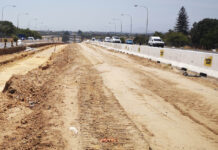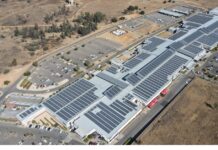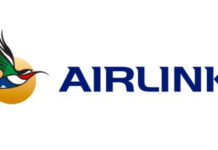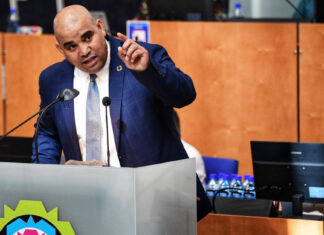By Lance Branquinho
VOLKSWAGEN South Africa (VWSA) has supplied DHL Express with four EV vans to be used at the logistics specialist’s Johannesburg, Durban and Cape Town operations. These are not the first VWSA EVs to be deployed in South Africa for testing and data research purposes, but they are the first to be subjected to real-world driving demands with a customer fleet.
In 2020, VWSA operated the e-Golf to evaluate local driving range and recharging conditions. Still, the company does not market any EVs in its local product portfolio despite being the largest passenger car band in South Africa.
VWSA’s investment in EVs has been significant. Globally, the Volkswagen Group has redirected its R&D funding towards battery electric vehicles, but greater EV adoption in the South African private buyer market is being constrained by range anxiety, recharging issues during load-shedding surges, and high vehicle purchasing costs.
For commercial operators, the EV equation is different from that of private buyers. Many larger logistics and distribution entities have transitioned to some form of off-grid electricity independence, creating the case and market opportunity for commercial EVs in the short-range logistics role.
The joint fleet evaluation project between VWSA and DHL Express will test the latest EV technology in a real-world scenario. The ID. Buzz Cargo vans supplied by VWSA to DHL Express aren’t the first logistical EVs to run in South Africa, but they are some of the most advanced. Optimising the benefits of Volkswagen’s EV architecture, the ID. Buzz Cargo has a flat floor, yielding a total load volume of 3.9 m2, although the payload capacity is less than a comparable-sized turbodiesel van, at only 607 kg.
With a 77 kWh battery capacity, the ID. Buzz Cargo is rated for a driving endurance of 425 km per charge, unladen. Its electric motor delivers 150 kW and 310 Nm of torque, with gearing rated for peak acceleration at lower speeds, where a laden delivery van requires alert throttle responses.
Recharging performance will be a crucial aspect of the project for DHL Express, with the ID. Buzz Cargo features an onboard electrical architecture capable of reenergising its battery from a 170 kW charger. The most potent EV chargers available in South Africa are 150 kW, enabling the ID. Buzz Cargo to use the country’s most rapid recharging stations, something not all EV delivery vehicles are currently capable of doing.
Where this EV test project is of particular interest, is its relatability to the operational endurance and recharge patterning of an EV in severe duty commercial use, running a passenger vehicle powertrain. DHL Express’s customer schedule and delivery demands will be a true test of the ID. Buzz Cargo’s battery endurance and performance.
An unrecognised benefit of operating an EV for logistics in South Africa is the issue of constant powertrain performance at any altitude. Although turbodiesel delivery vans resist some oxygen-scarce performance losses as altitude increases, they suffer power losses. In contrast, an EV suffers no performance degradation as delivery routes climb from sea level.
Although the VWSA and DHL Express ID. Buzz Cargo pilot project is focussed on evaluating the viability of EV delivery vans for South African short-range logistics, there is adjacent relatability for the local EV passenger car market. Unlike many of South Africa’s other EV vans in delivery fleets, the ID. Buzz Cargo shares its vehicle architecture, battery specification and motor type with the broader Volkswagen international ID range of passenger vehicles.
Data generated by DHL Express, running the ID. Buzz Cargo in Johannesburg, Durban and Cape Town, could be correlated for scenario planning around VWSA’s passenger car EVs for the local market, as all ID. vehicles share similar battery types, electric motors and on-board recharging architectures.















